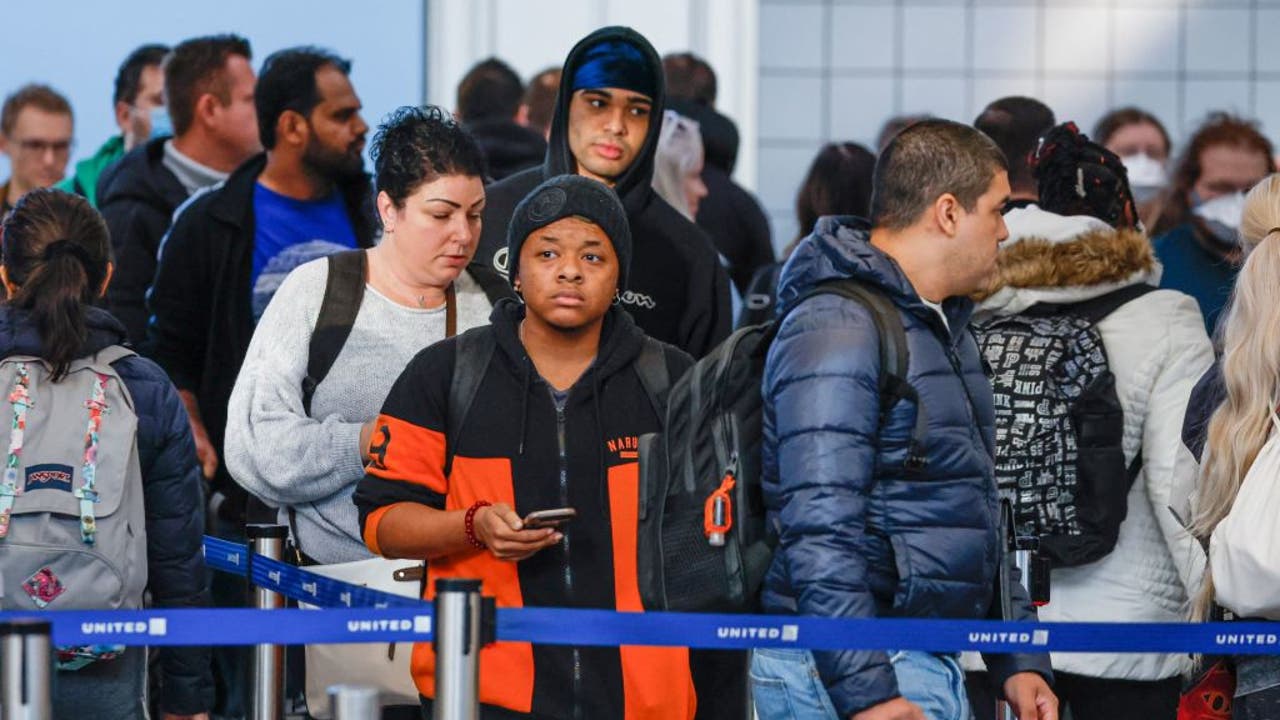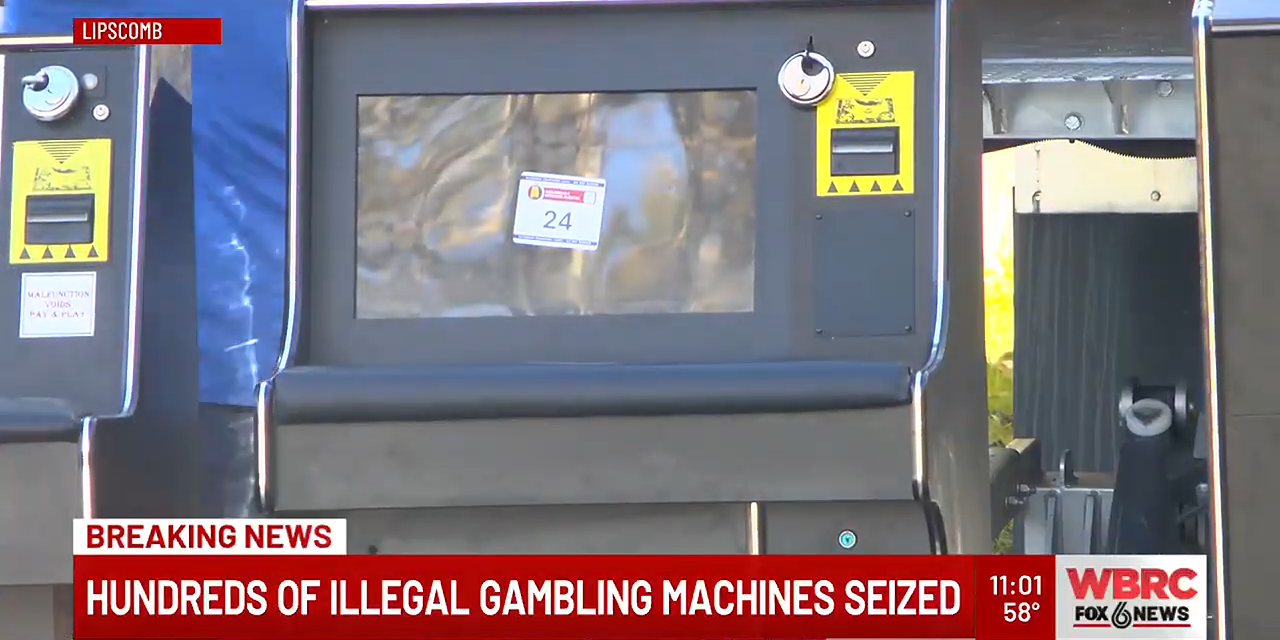Gambling
Why the ‘bloody battle’ of lottery and gambling is dead in 2024 – and maybe for 2025

Gambling and lottery bills in Alabama are like the antagonist of a horror flick: Just when the monster seems to be dead, they return to find more victims during the sequels.
But after this year’s gambling and lottery monster seemingly died this spring, some public officials seem to be OK with putting the beast away for the remainder of this year. And to some, they would prefer to keep the monster contained in 2025, as well.
Alabama Gov. Kay Ivey said on Thursday she is not interested in calling a special session to revive the issue, and lawmakers are taking her word for it.
“This has been a bloody battle this whole session,” said Sen. Greg Albritton, R-Atmore, who was the Senate sponsor of the version that advanced out of a legislative conference committee It was approved by the Alabama House but defeated by a single vote in the Senate on April 30.
Albritton was one of 15 “No” votes on HB131, which would have established a constitutional amendment to legalize a state lottery and authorized seven casinos but would have prohibited sports betting and included no new casino for the Poarch Band of Creek Indians.
A second bill — HB132 — represented the enabling legislation that distributed the proceeds from casino gambling to a host of sources that include rural health care, mental health, retiree bonuses, drug courts, road repairs, and more. The lottery proceeds were earmarked almost entirely toward education.
“It’s affected us from the first day to the last (day of session),” Albritton said. “There are damaged relationships all up and down the line over this.”
Toward 2025
Alabama House Speaker Nathanial Ledbetter, R-Rainville, speaks during a luncheon hosted by the Mobile Chamber on Thursday, Nov. 9, 2023, at the Renaissance Mobile Riverview Plaza Hotel in downtown Mobile, Ala.John Sharp/jsharp@al.com
Albritton said he wasn’t eager to take on the issue in 2025. The last major attempt at legalizing gambling and lottery, ahead of this spring, was in 2021. Efforts have come and gone over the years since voters last had a chance to decide on legalizing a statewide lottery in 1999.
“I don’t know if I will (take on the issue),” Albritton said. “I got to have more support than what I have now. For me, I still need to know (the support) is there.”
Republican Alabama House Speaker Nathaniel Ledbetter, R-Rainsville, said he “didn’t have any plans to” revisit the issue, though he remains concerned over the lack of legislative activity that allows for widespread illegal forms of gambling to continue statewide.
Ledbetter told reporters Thursday he’s had two people approach him about local constitutional amendments to allow for gambling in their counties. Alabama already has 17 local constitutional amendments that allow for some form of electronic bingo. Those amendments would have been repealed under the comprehensive gambling package that failed to advance out of the Senate on April 30.
“We tried to fix a problem,” Ledbetter said. “I think (illegal gambling) is an issue. I don’t know how long we can keep our heads in the sand. It’s a fact of life.”
Alabama State Sen. President Pro Tem Greg Reed, R-Jasper, on the floor of the Senate on Thursday, May 2, 2024, inside the State House in Montgomery, Ala.John Sharp
Alabama Senate President Pro Tempore Greg Reed, R-Jasper, said he anticipates the issue being revisited in 2025.
“Do I anticipate that legislation will once again come from members of the Alabama Senate or House related to the topic of gaming? I do,” he said.
Special session
Senator Minority Leader Bobby Singleton, D-Greensboro, is even more optimistic. He believes that if Ivey calls a special session this summer, the existing package that died by a single vote would pass.
“I think we can put together a package that can bring people on board,” Singleton said. “And bring that one vote on. I really do.”

Alabama Gov. Kay Ivey speaks at a rally about school choice on Jan. 22, 2024 at the State Capitol.(Mike Cason/mcason@al.com)
Ivey, who told reporters Thursday she was “disappointed” with the Legislature on the issue, said she was not interested in the expense and time of calling a special session on gambling and lottery.
“Why would I do that?” Ivey said.
The costs associated with a special session, which only Ivey can call, can be expensive. According to the Legislative Services Agency, the special session called last July was certified at $146,750. That session, dealing with redistricting, lasted only five days. A special session can last up to 12 days.
Alabama State Sen. Chris Elliott, R-Josephine, speaks on the floor of the Alabama State Senate on Thursday, May 2, 2024, at the State House in Montgomery, Ala.John Sharp
“I agree with the governor on this,” said Sen. Chris Elliott, R-Josephine, who was one of the “No” votes on the conference committee’s package, but who voted in support of a scaled-back plan the Senate had in early March that included a lottery, but no sports betting and three casinos operated by the Poarch Band of Creek Indians (PCI). The House version, first passed in February, included a lottery, 10 casinos – including four operated by PCI – and legal sports betting.
Elliott said he voted against the final version on the Senate floor out of concerns over widespread electronic casino gambling in Alabama – the conference committee’s version included seven new casinos, but no sports betting — and legislative language he said was aimed at Medicaid expansion, public transportation, and host of what he called other “gimmicks.”
“There is no point in calling a special session when the votes are not there to pass what it is you want to pass,” said Elliott. “We just got out of a session where the votes weren’t there to pass it. It would be a giant waste of time, and energy and taxpayer money.”
Political repercussions
If gambling isn’t revived in 2025, it could have a difficult road in 2026, ahead of the next round of elections for state officeholders.
But over the years, voters have largely not held lawmakers accountable for an inability to approve a legislative package in Alabama that would allow them to vote on a lottery. Alabama remains one of five states without a lottery, and proponents argue that the state is losing hundreds of millions of dollars annually from the lack of having it.
According to polling over the past few years, support for the lottery is strong in Alabama. A poll taken in November by KAConsulting LLC, and headed up by former Trump campaign manager Kellyanne Conway, shows a whopping 80% support for lottery in Alabama. The poll consisted of 60% of people identifying as Republican.
Alabama State Rep. Chris Blackshear, R-Smiths Station, speaks on the floor of the Alabama House of Representatives on Wednesday, May 8, 2024, at the State House in Montgomery, Ala.John Sharp
“If the elections were now, it could potentially be there,” said Rep. Chris Blackshear, R-Smiths Station, who was the House sponsor on the conference committee’s gambling package that was approved out of the House but died in the Senate. “When you see polling in the high 70s to 80s (supportive of lottery) that means they want to vote. But it all depends on what happens between now and the next two years. It’s hard to predict.”
Campaign ads, especially during the Republican primaries in 2022, tended to focus more on culture war and nationalized political issues such as gun rights, LGBTQ policies, immigration, and abortion.
“I don’t know if (the failure to pass a lottery and gambling package) has been effectively tested in the marketplace on Election Day,” said Jess Brown, a longtime political observer of state politics in Alabama and a retired professor of political sciences at Athens State University. “If the Legislature doesn’t do anything, I think it will be thoroughly tested in 2026. Even in a Republican primary, if someone steps forward in 2026 and says it’s financial malpractice not to have a lottery-only bill or a lottery proposition on the Alabama ballot, and I’m not talking about a comprehensive gambling package, but I think among Republicans, they find it absolutely absurd.”
Lottery proceeds

A man brings in five winning scratch offs at Keith’s Superstore in Gautier.
A study group’s report on gambling policy, issued in December 2020, estimated that Alabama would net up to $300 million a year from a lottery. The conference committee’s proposal, which was defeated in the Senate, would have funneled most of those funds toward education.
Neighboring states, where Alabamians have to travel to purchase lottery tickets, are also experiencing a financial boon from their lotteries. Georgia’s lottery raises over $1.5 billion annually for its HOPE education scholarships and pre-K programs. Tennessee, since authorizing lottery in 2004, has raised over $6.2 billion for educational-related purposes. Mississippi, which has had lottery for four years, has raised more than $488 million that goes to a variety of needs, primarily transportation.
Brown estimates that the state has lost, at a minimum, more than $1.5 billion since voters shot down Siegelman’s lottery referendum in 1999, by a vote of 54% to 46%.
Alabama State Sen. Bobby Singleton, D-Greensboro, speaks on the Senate floor on Thursday, May 2, 2024, at the State House in Montgomery, Ala.John Sharp
Singleton said that by 2026, it might not be politics that forces the issue, but a lack of revenue from federal sources.
“I think that after 2026, when all this federal (COVID) money is gone, when we start to being short on our budgets, it’s going to show,” he said. “And then we’re going to be wishing that we had done this. And we’re going to be in that sense of urgency, and I think that we’ll get it passed.”
Reed said whatever happens, the monster will linger in the halls of the State House for the foreseeable future – whether a new piece of gambling and lottery legislation is introduced or not.
“I’ve been in the Legislature for 14 years, and it’s with us every year,” he said. “Is it a topic of significance? Yes.”










